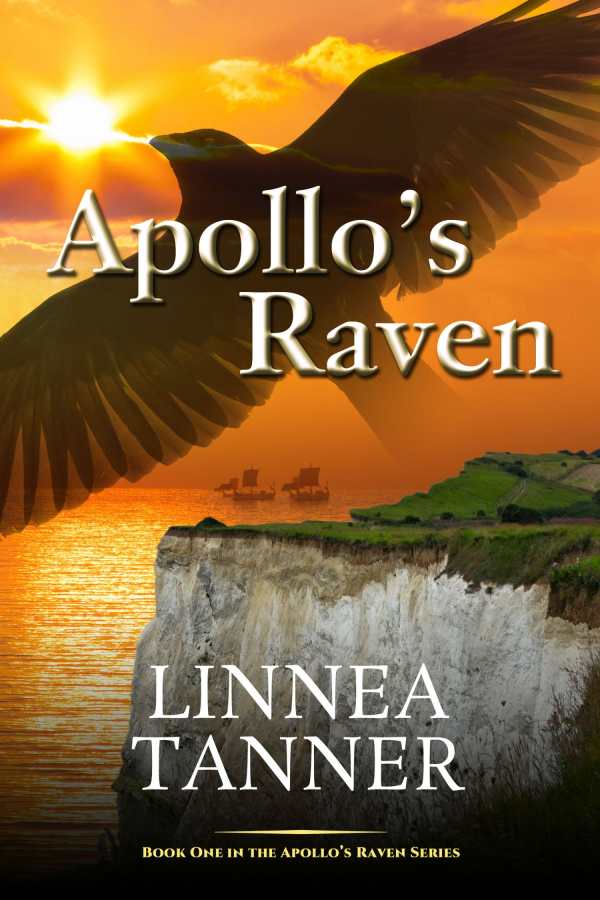Apollo's Raven
This rapturous read mixes Celtic mythology into a good historical romance.
Apollo’s Raven, the first volume of a multivolume fantasy series by Linnea Tanner, is a sweeping, fiery drama in which a Celtic warrior princess must choose between love and family loyalty.
The book is set in a politically volatile Britannia at the brink of war with the Romans. The year is 24 CE, and Senator Lucius Antonius, a grandson of Marc Antony, has arrived in Britannia with a legion to exact tribute from King Amren of Cantiaci. He also plans to investigate a rival clan’s claims to the legitimacy of Marrock, Amren’s banished son, as rightful heir to the throne.
When the talks devolve into violence, Catrin, Amren’s youngest daughter, spares the life of Lucius’s son Marcellus, incurring the wrath of her father. The two groups reluctantly agree to a hostage exchange—Marcellus for Amren’s eldest daughter, Vala—to ensure peaceful negotiations.
King Amren charges Catrin to guard and spy on Marcellus in order to discern the Romans’ true intentions. Catrin, who has the mystical spirit powers of a raven, finds herself romantically drawn to Marcellus. Torn between her love for Marcellus and loyalty to her people, Catrin must use her powers to battle the dark prophecy threatening to destroy her future.
“Political schemes…twisting on each other, [and] not what they appear at first glance,” is a perfect summation of this tale that combines the best elements of sword and sorcery, Celtic mysticism, romance, and historical fact to create a cohesive and masterfully constructed narrative.
Well-researched, with attention to historical details and Celtic lore and mythology, the book explores the pagan traditions of the ancient Celts and Romans with a deft hand, juxtaposing the Cantiaci’s polytheistic and naturalistic deities (the animal warrior spirits of raven, horse, and wolf, and Mother Goddess) against the paternalistic hierarchy of Roman social and religious circles. All liberties taken make sense within the context of the story.
Character developments also champion feminism. The women of the Cantiaci show strength and unity of purpose in their actions and thoughts. Men in the story, while competent with their displays of physical strength, demonstrate an almost brutish impetuosity, and their “damsel-in-distress” nature requires timely women’s interventions.
Various plot points ebb and flow in a thoughtful way, as does language. The sequence of events moves logically, smoothly, and swiftly from chapter to chapter. Sex scenes sometimes feel gratuitous. Short chapters provide no opportunities for awkward pauses, and there are no breaks in energy or sudden stops in the cascade of churning events that move the plot forward to its logical, cliff-hanging end.
Apollo’s Raven is a rapturous read that mixes Celtic mythology into a good historical romance.
Reviewed by
Nancy Powell
Disclosure: This article is not an endorsement, but a review. The publisher of this book provided free copies of the book and paid a small fee to have their book reviewed by a professional reviewer. Foreword Reviews and Clarion Reviews make no guarantee that the publisher will receive a positive review. Foreword Magazine, Inc. is disclosing this in accordance with the Federal Trade Commission’s 16 CFR, Part 255.

